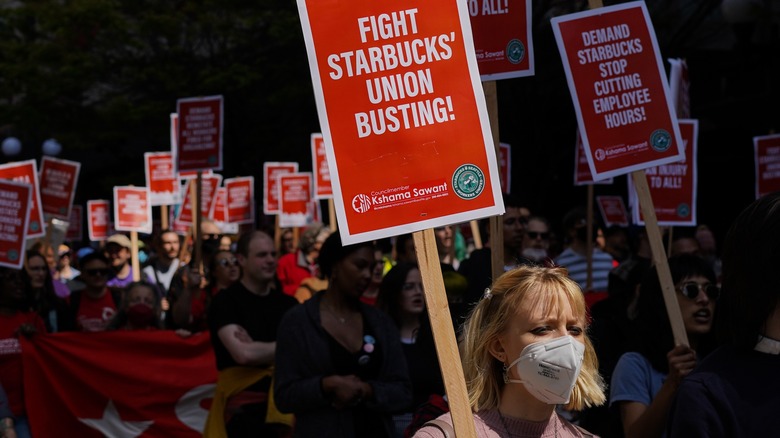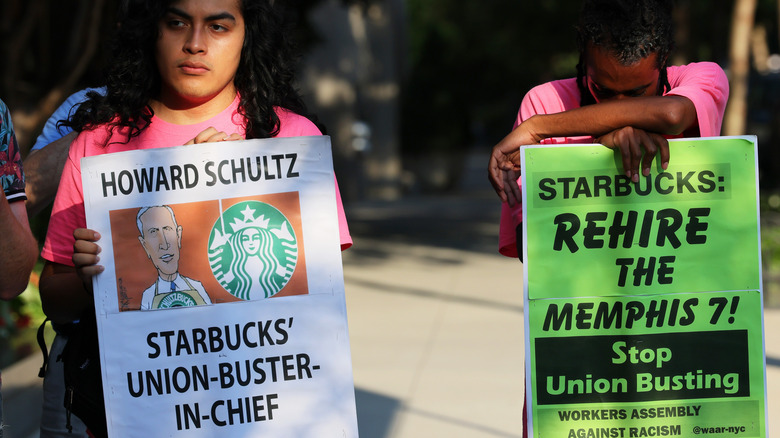Starbucks' Union Busting Is Finally Backfiring On Them In A Major Way
Since 2021, Starbucks has been in the spotlight for its alleged union-busting efforts at several locations throughout the country. The first Starbucks location to unionize took place back in 2021 in Buffalo, New York. Since then, more locations across the country began to mobilize despite, Starbucks' reputation for allegedly fighting unionization efforts. The organization Starbucks Workers United was formed as droves of workers continue to fight for fair working conditions and practices. More than 278 Starbucks locations have unionized.
As the movement spread, Starbucks allegedly tried to halt it and embarked on union-busting tactics, such as spreading anti-union messages and closing stores, Forbes reports. While it seemed like there were positive talks between Starbucks representatives and union members last September, the coffee chain reportedly walked out of the bargaining sessions, resulting in the Starbucks workers' strike.
In December, the National Labor Relations Board (NLRB) issued a complaint against Starbucks, alleging that it violated federal law by seeking union documents while on trial. Now, Starbucks workers have won a huge victory amid their battle with the company.
A judge ruled that Starbucks violated federal laws
Starbucks' alleged efforts in union-busting were ruled as "egregious and widespread" violations of federal laws by a National Labor Relations Board judge. On March 1, Judge Michael A. Rosas stated that the coffee chain had shown "general disregard for employees' fundamental rights" in its retaliation against unionized employees, reports The Washington Post.
The coffee chain was hit with 32 unfair labor charges by employees for its alleged union-busting tactics, according to HuffPost. Rosas ruled Starbucks "illegally monitored and disciplined employees who engaged in the union drive and committed various violations meant to weaken support for a union at several coffee shops." Starbucks must reopen stores that were shut down as a result of unionization efforts and reimburse back pay, as well as reinstate terminated workers.
As part of the ruling, Starbucks CEO Howard Schultz must read a notice explaining workers' rights and how Starbucks violated them. The notice also has to be distributed to employees and posted inside every Starbucks location. Schultz had publicly opposed unionization efforts, once telling CNN's Poppy Harlow they aren't due to problems with the company but a larger frustration with "the status quo." Both parties have until March 28 to appeal.

